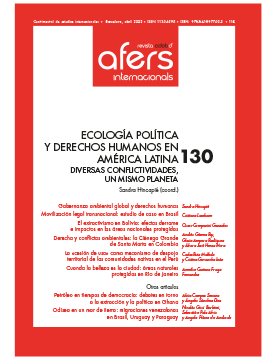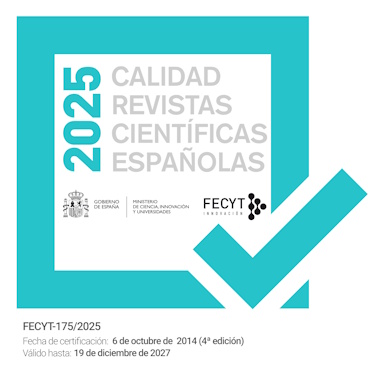Extractivism in Bolivia: spillover effects and impacts on national protected areas
Keywords:
extractivism, protected natural areas (PNA), regulations, human rights, BoliviaAbstract
The deepest impacts of extractivism are its spillover effects – the transformations it provokes in public policies (environmental, social and economic) and in terms of key concepts like development, politics, justice, democracy and nature. Based on a description of the cases of Tariquía National Flora and Fauna Reserve, Carrasco National Park and the Apolobamba National Natural Area of Integrated Management, this paper analyses the sequence of extractivism-related spillover effects on public policies, regulations and the operation of all Bolivia’s protected areas. Particular emphasis is placed on the consequences for human rights and rights of nature, which are recognised in Bolivian law.
Revista CIDOB d’Afers Internacionals, n.º 130, p. 73-95
Quadrimestral (January-April 2022)
ISSN:1133-6595 | E-ISSN:2013-035X
DOI: doi.org/10.24241/rcai.2022.130.1.73
Reception date: 01.10.21 ; Acceptance date: 21.01.22













